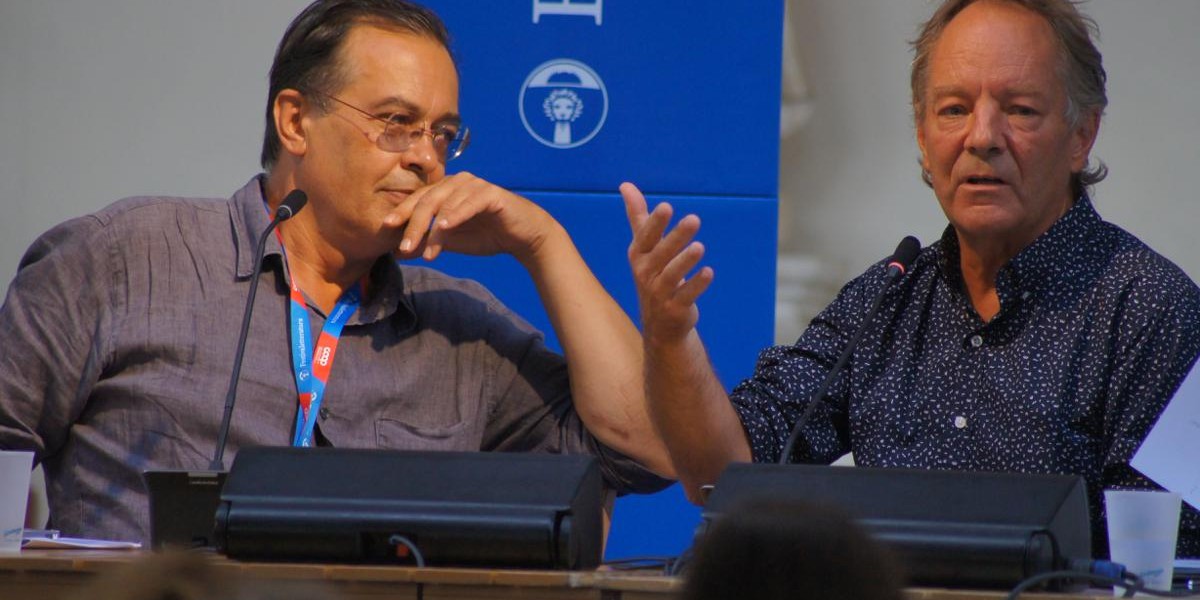
Constantly evolving yet comfortingly familiar
Have you
ever gone back, in your dreams or daydreams, to a childhood place you loved? A
place that now exists more in your imagination than it does in reality? If so,
then you can understand why Tom Drury has returned to Grouse County in his
recent novel Pacifico, closing the trilogy that began with The End of
Vandalism and continued with Hunts in Dreams. Drury discussed his
books with Luca Briasco at Palazzo San Sebastiano on Friday afternoon,
especially his new work, which is a tale of both permanence and evolution.
Briasco comments on the trend in American literature of stories being rooted in a particular place, a place which then becomes its own microcosm. In Drury’s case, this place is the fictional Grouse County, based on his childhood home. He calls where he grew up his “favourite stage,” explaining how his “imagination is fertile there.” This place is closer to him in his memory than in his daily life, allowing him to take liberties with it and to place his characters there, telling them: “See what you can do with it.” In his novel, he explores the importance of memory, endowing it with incredible value yet simultaneously wondering if, perhaps, there is a danger of being trapped in memories and childhood imagination.
Yet Grouse County is not a static place. Like many small towns across the United States, it is facing a changing world, one in which big-box stores have replaced local shops, in which commerce is moving toward cities and away from towns. Drury wants to capture this change, which he views as a fact of life. What happens to the spirit of the place, though? Does that also disappear? As an answer to this, Briasco proposes the characters, claiming that they are the points of stability in an ever-changing world. Drury agrees, adding that “there are pressures on people to change,” but he is fascinated by how people stay dedicated to remaining themselves. In Pacifico, for example, the protagonist Micah leaves Grouse County to go to Los Angeles, and the novel traces the storylines in both places.
Like revisiting old friends, Drury returns to his beloved characters, but with a different narrative voice: “My voice tends to change based on the story I’m telling.” In Micah, Drury has created a character of whom his adolescent self would be envious. Micah is cool, charismatic, and has a charming novelty in Los Angeles. While the town fights, perhaps futilely, against the mega-stores, Micah rebels against computers and the reign of technological terror. Drury describes him as being on a “collision course with authority.” Drury expresses his own distaste for the modern habit of always “taking direction from a screen,” be it a cell phone GPS or a work computer filled with emails. Tiny is another character who exhibits this streak of rebelliousness; he is a trickster, a Robin Hood figure who steals from the big-box stores and questions authority. Drury comments, “he’s just the thing that makes trouble and every novel needs that.”



